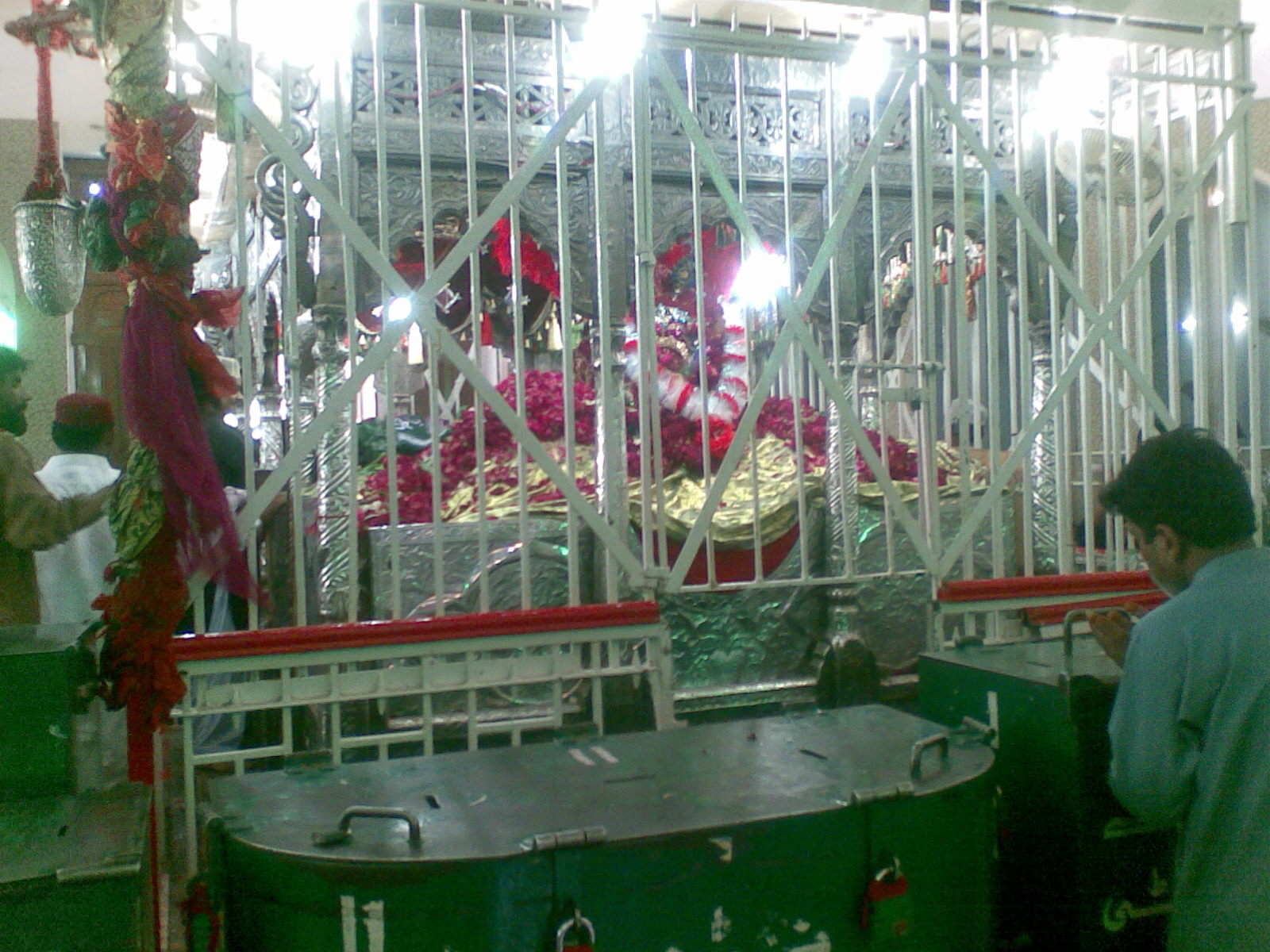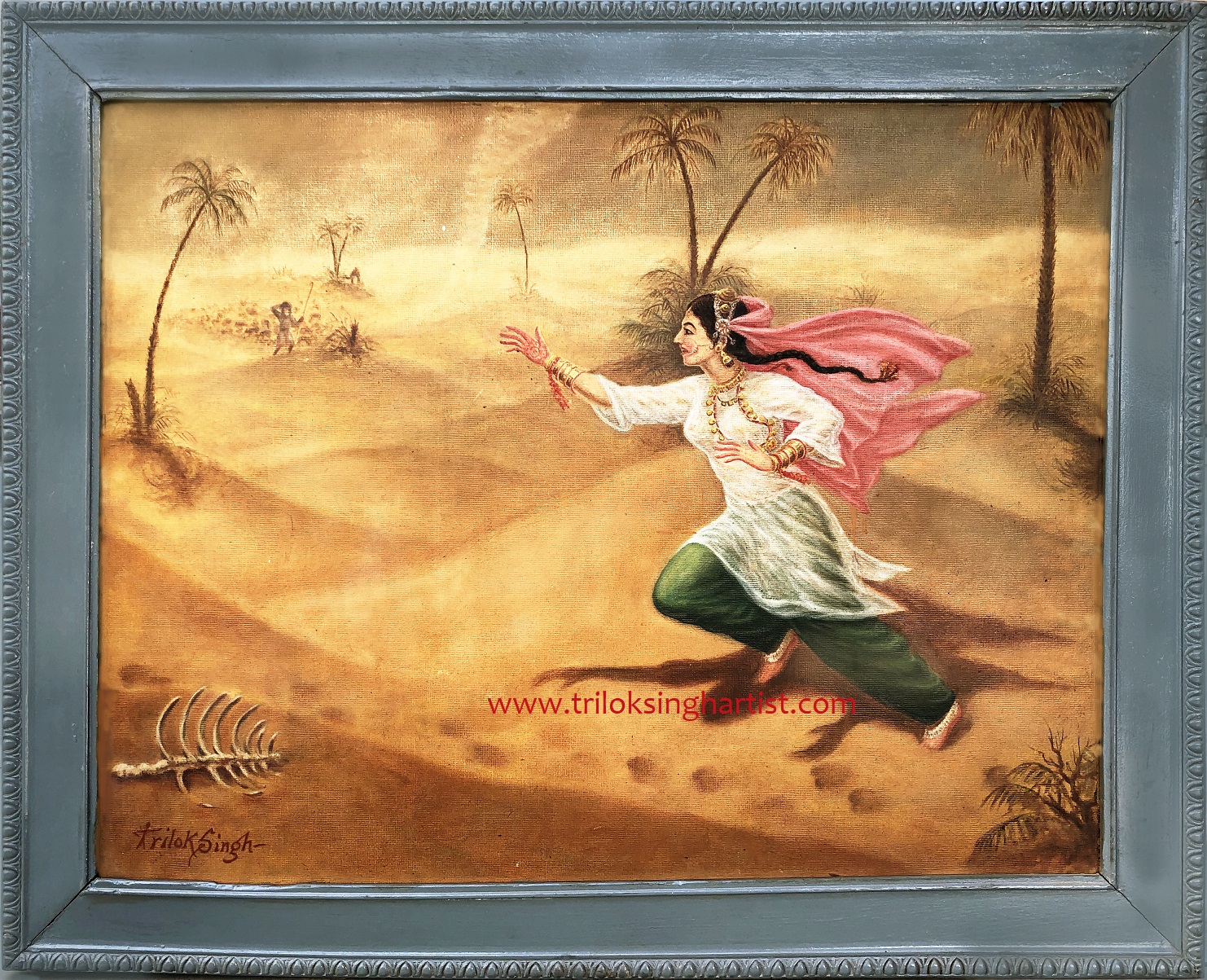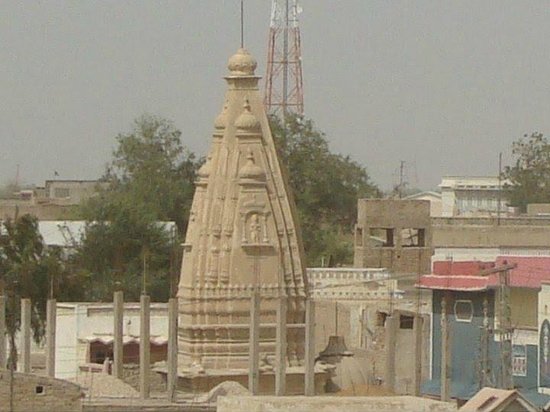|
Shabnum Gul
Shabnum Gul ( Sindhi: شبنم گل) (born on July 5, 1963, in Dadu in District Larkana), is a writer who contributed 15 books on diverse subjects along with several Research papers on the different subjects. Shabnum Gul rendered valuable services in the field of education and served various colleges of Hyderabad region. She is working at present as an Associated professor and head of English department in Government, shah Latif College, Latifabad. She has served as a Secretary at Sindhi language Authority. Early life Shabnum Gul was born on 5 July 1963 in Dadu in District Larkana, Sindh. Her family name is Razia Sultana but she is well known with her pen name Shabnum Gul. Her father Dr. Bashir Ahmed Lashari was medical officer and posted different places of Sindh. Her family is well read and well acquainted with folk wisdom, so that she continues that legacy in her writings. Her writings reflect true colors of soil and folk wisdom. Shabnum Gul is prominent Author, scholar, an ... [...More Info...] [...Related Items...] OR: [Wikipedia] [Google] [Baidu] |
:Template:Infobox Writer/doc
Infobox writer may be used to summarize information about a person who is a writer/author (includes screenwriters). If the writer-specific fields here are not needed, consider using the more general ; other infoboxes there can be found in :People and person infobox templates. This template may also be used as a module (or sub-template) of ; see WikiProject Infoboxes/embed for guidance on such usage. Syntax The infobox may be added by pasting the template as shown below into an article. All fields are optional. Any unused parameter names can be left blank or omitted. Parameters Please remove any parameters from an article's infobox that are unlikely to be used. All parameters are optional. Unless otherwise specified, if a parameter has multiple values, they should be comma-separated using the template: : which produces: : , language= If any of the individual values contain commas already, add to use semi-colons as separators: : which produces: : , pseu ... [...More Info...] [...Related Items...] OR: [Wikipedia] [Google] [Baidu] |
Sehwan
Sehwan (; ; also commonly referred to as Sehwan Sharif or ''Noble Sehwan'') is a historic city located in Jamshoro District of Sindh province in Pakistan situated on the west bank of the Indus River north-west of Hyderabad. The city is renowned for being the home of one of Pakistan's most important Sufi shrines, the Shrine of Lal Shahbaz Qalandar. The city also holds the status of taluka under the Jamshoro District. It was previously a part of the Dadu District; however, with the establishment of the Jamshoro District, Sehwan became linked with it. Sehwan is among Pakistan's most significant spiritual centers, alongside other revered shrines like the Shrine of Abdullah Shah Ghazi in Karachi, the Data Durbar Complex in Lahore, Bari Imam in Noorpur Shehan near Islamabad, and the magnificent tombs of the Suhrawardi Sufis in Multan. History Sehwan is one of the most ancient places in Sindh. Some historians suggest that this town dates back to the period of Prophet Shees, son ... [...More Info...] [...Related Items...] OR: [Wikipedia] [Google] [Baidu] |
Pakistani Short Story Writers
Pakistanis (, ) are the citizens and nationals of the Islamic Republic of Pakistan. Pakistan is the fifth-most populous country, with a population of over 241.5 million, having the second-largest Muslim population as of 2023. As much as 85-90% of the population follows Sunni Islam. A majority of around 97% of Pakistanis are Muslims. The majority of Pakistanis natively speak languages belonging to the Indo-Iranic family ( Indo-Aryan and Iranic subfamilies). Located in South Asia, the country is also the source of a significantly large diaspora, most of whom reside in the Arab countries of the Persian Gulf, with an estimated population of 4.7 million. The second-largest Pakistani diaspora resides throughout both Northwestern Europe and Western Europe, where there are an estimated 2.4 million; over half of this figure resides in the United Kingdom (see British Pakistanis). Ethnic subgroups Ethnically, Indo-Aryan peoples comprise the majority of the population in the ... [...More Info...] [...Related Items...] OR: [Wikipedia] [Google] [Baidu] |
Sindhi Writers
Sindhi may refer to: *something from, or related to Sindh, a province of Pakistan * Sindhi people, an ethnic group from the Sindh region * Sindhi language, the Indo-Aryan language spoken by them * Sindhi Hindus, ethnic Sindhis who follow Hinduism People with the name * Sarkash Sindhi (1940–2012), poet of the Sindhi language * Ubaidullah Sindhi (1872–1944), political activist * Ahmad Bakhsh Sindhi (1917–2000), leader of the Indian National Congress * Abu Raja Sindhi, 10th century Islamic scholar * Abu Mashar Sindhi, 8th century Arabic historian and Islamic scholar See also * * Sindh (other) * Sindi (other) * Sindia (other) * Sindi people, an ancient Scythian people * Sinti, a Romani people of Central Europe * Red Sindhi, a breed of cattle * Scindia Ghat or Sindhia Ghat, riverside in Varanasi India * Scindia or Sindhia, former ruling dynasty of Gwalior, India * Scindian ''Scindian'' is widely considered the first convict ship to transport conv ... [...More Info...] [...Related Items...] OR: [Wikipedia] [Google] [Baidu] |
Sindhi Literature
Sindhi literature () is the collection of oral and written literature in the Sindhi language in prose (romantic tales and epic stories) and poetry (''ghazals'' and '' nazm''). The Sindhi language of the province of Sindh in Pakistan is considered one of the oldest languages of ancient India, and influenced the language of Indus Valley inhabitants. Sindhi literature has developed over a thousand years. According to historians Nabi Bux Baloch, Rasool Bux Palijo, and G. M. Syed, Sindhi influenced Hindi in the pre-Islamic era. After the advent of Islam in the eighth century, Arabic and Persian influenced the region's inhabitants and were official languages. Shah Abdul Latif Bhittai, Shah Abdul Karim Bulri, Shaikh Ayaz and Ustad Bukhari are notable Sindhi poets. History Early period (712–1030) Local Hindu rajas had ruled Sindh. In 712, the Arabs conquered the region. They did not speak Sindhi, but Sindhi writers and poets played a role in development of the Sindhi an ... [...More Info...] [...Related Items...] OR: [Wikipedia] [Google] [Baidu] |
English Literature
English literature is literature written in the English language from the English-speaking world. The English language has developed over more than 1,400 years. The earliest forms of English, a set of Anglo-Frisian languages, Anglo-Frisian dialects brought to Great Britain by Anglo-Saxon settlement of Britain, Ango-Saxon settlers in the fifth century, are called Old English. ''Beowulf'' is the most famous work in Old English. Despite being set in Scandinavia, it has achieved national epic status in England. However, following the Norman Conquest of England in 1066, the written form of the Old English, Anglo-Saxon language became less common. Under the influence of the new aristocracy, French became the standard language of courts, parliament, and polite society.Baugh, Albert and Cable, Thomas. 2002. ''The History of the English Language''. Upper Saddle River, New Jersey: Prentice Hall. pp. 79–81. The English spoken after the Normans came is known as Middle English. This form ... [...More Info...] [...Related Items...] OR: [Wikipedia] [Google] [Baidu] |
Johi, Dadu
Johi () is a town in Dadu District, Hyderabad Division, Sindh province of Pakistan. It is located along Sindh's border with the Balochistan province. Johi town is also Taluka A tehsil (, also known as tahsil, taluk, or taluka () is a local unit of administrative division in India and Pakistan. It is a subdistrict of the area within a district including the designated populated place that serves as its administrative ... of Dadu District. A civil hospital is also in Johi. History Johi is commonly known as the historical area and has many villages like Haji Khan Hairo Khan, Bazmaal khoso, Drigh Bala, Rajaghanda and many similar villages. It has many visiting places people here depend on the rain water and do crops as land is very rich in minerals. The ancient place of Ghazi Shah Mound is located near Johi towards west-south. The Buddhist monument Thul Hairo Khan is towards its north-west. It has historical town Wahi Pandhi and at a distance of 50 km from Wahi Pandhi ... [...More Info...] [...Related Items...] OR: [Wikipedia] [Google] [Baidu] |
Shah Abdul Latif Bhittai
Shah Abdul Latif Bhittai (; 1689/1690 – 21 December 1752), commonly known by the honorifics ''Lakhino Latif'', ''Latif Ghot'', ''Bhittai'', and ''Bhit Jo Shah'', was a Sindhi Sufi mystic and poet from Pakistan, widely considered to be the greatest poet of the Sindhi language. Born to a Kazmi Sayyid family of Hala Haweli originating from Herat, near modern-day Hala, Bhittai grew up in the nearby town of Kotri Mughal. At the age of around 20, he left home and traveled throughout Sindh and neighboring lands, and met many mystics and Jogis, whose influence is evident in his poetry. Returning home after three years, he was married into an aristocratic family, but was widowed shortly afterwards and did not remarry. His piety and spirituality attracted a large following as well as the hostility of a few. Spending the last years of his life at Bhit (Bhit Shah), he died in 1752. A mausoleum was built over his grave in subsequent years and became a popular pilgrimage site. His ... [...More Info...] [...Related Items...] OR: [Wikipedia] [Google] [Baidu] |
Dadu District
Dadu District (), () is a Districts of Pakistan, district of Sindh, Sindh Province, Pakistan. With headquarters in the city of Dadu, Pakistan, Dadu, the district was created in 1931 by merging Kotri and Mahal Kohistan (later Jamshoro) tehsils from Karachi District and Mehar, Khairpur Nathan Shah, Dadu, Johi and Sehwan tehsils from Larkana District. In 2004, several talukas in the south were split off to create the new Jamshoro District. Its boundary touches four districts of Sindh: Jamshoro District, Jamshoro, Naushahro Feroze District, Naushahro Feroze, Shaheed Benazirabad District, Shaheed Benazirabad and Kamber Shahdadkot District of Sindh, Kamber Shahdadkot. The main languages spoken in Dadu are Sindhi language, Sindhi, Balochi language, Balochi and Urdu. Some of the popular tourist attractions in the district include the Gorakh Hill and Lake Manchar, Manchar Lake. History In 1931, Dadu District was created by the birfucation of Larkana District. Pre-Dadu Sub-Divisions # ... [...More Info...] [...Related Items...] OR: [Wikipedia] [Google] [Baidu] |
Sindhi Language Authority
The Sindhi Language Authority (abbreviated as SLA; ) is an autonomous institution under the Government of the Pakistani province of Sindh that fosters the Sindhi language and literature, works to develop and promote the language in Sindh, and to do original research in the Sindhi language. It comes under the administrative control of the Culture, Tourism and Antiquities Department. The SLA was established under the act ''Use of Sindhi Language Act 1972'', and ''the Teaching, Promotion and Use of Sindhi Language (Amendment) Act, 1990'' of the Government of Sindh. There is a Board of Governors to frame the policies for achieving the aims and objectives of authority and ensure their implementation. The first Board of Governors was constituted under the chairmanship of Nabi Bux Khan Baloch, a scholar and writer. Since the establishment of the Sindhi Language Authority, different scholars and writers were appointed as its chairman, who have contributed to the development and promoti ... [...More Info...] [...Related Items...] OR: [Wikipedia] [Google] [Baidu] |
Latifabad
Latifabad (,) is a township in the southern suburbs of the city of Hyderabad, in Sindh, Pakistan. History Latifabad is named after the renowned Sindhi Sufi poet, Shah Abdul Latif Bhittai. Its initial denizens were Sindhi but after communal uprisings in 1980s between Sindhi speaking and Urdu speaking people and some other after which many sindhis migrated to nearby area (qasimabad); The majority of Urdu and Sindhi speaking people live here, It was populated as an extension to the city of Hyderabad to settle hundreds of thousands of Muslim refugees from India escaping from anti-Muslim pogroms, along with the town of Qasimabad. The locals that settled the town at its start were racially of a mixed population but as the city experienced its worst traditional demonstrations between Sindhis and Muhajirs in the 1980s, the city was divided into two sub parts Sindhi settling the town of Qasimabad and the Urdu speaking took over Latifabad. Serving an ethnic majority of the Urdu sp ... [...More Info...] [...Related Items...] OR: [Wikipedia] [Google] [Baidu] |





